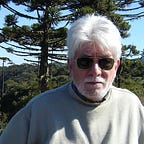The press and the parallel state in the police system (*)
The arrest of three high-ranking civil service men accused of planning the murder of city councilwoman Marielle Franco (1) provides a rare opportunity to have a glimpse into the illegal parallel state that operates in Rio de Janeiro. Until now, organized crime mafias were seen as marginal tumours in the power structure of the state of Rio de Janeiro, but the Marielle case offered new evidence of an ongoing “metastasis” in the local political backstage, where it is increasingly difficult to identify who plays a dual role within public power.
All the main people involved in the murder that took place in March 2018 had or still have legal functions in the Rio public security apparatus. They have followed low-profile public behaviour to disguise an illegal double militancy by following orders and achieving objectives established by the mafias of militiamen, drug traffickers and “bicheiros” (the mafia of the illegal gambling in Rio de Janeiro). This duplicity of functions constitutes a parallel state within the rule of law, which signals a disturbing threat to the democratic system and the country’s constitution.
It also creates a complex challenge for the press and journalism because reporters and editors are facing a situation where normal procedures will have to be changed as far as crime reporting is concerned in big cities like Rio de Janeiro. There is a general feeling among Brazilian reporters and editors that many regional police forces in Brazil have been affected by the double-pattern of conduct. The case of Rio’s police chief Rivaldo Barbosa shows how deeply this misconduct has been spread in the official security system.
Barbosa was one of the three suspects arrested by the Federal Police, the equivalent of the FBI in Brazil, for obstructing the investigation into the murder of Marielle Franco. He took over as police chief the day before the crime and always maintained cordial relations with the councillor’s family and the press, saying that clarifying the death was “a matter of honour” for him. After the arrest of Barbosa, who was also a teacher in a law faculty in Rio, many newsmen couldn’t hide their astonishment.
During the six years that passed between the murder and the arrest of the perpetrators, the press always focused more on covering and analyzing the participation of the people involved, without paying much attention to the criminal system in which they were inserted. The personalization of criminal activity in Rio de Janeiro prevented the public debate from being extended to the parallel state that was gradually forming in the second-largest Brazilian city, where 60% of its urban area (384 square kilometres) is subject to the control of some type of illegal mafia.
In the current situation, it is mandatory to punish criminal members of militias and mafias, but it is much more important to combat the parallel state. Brazilian academic researchers claim that the, parallel state does not want to control constitutional power, but rather to use it to achieve impunity in its extralegal actions, as shown by the testimony of those who live in areas controlled by one of the three main Rio militias (Red Command, First Command and ADA, acronym for Amigos dos Amigos (Friend of friends, in Portugues) where the use of force and intimidation is a permanent feature.
The crucial role of the media
Preservation of the democratic rule of law requires the beginning of a broad public debate about the nature and political risks of the illegal parallel state. The press has a central responsibility in opening and leading this debate, as it is up to them to generate information that will feed the sharing of opinions and new data among social media users. Today, networks are increasingly the main space for forming opinions and, therefore, a priority audience for journalism.
The growing evidence of a symbiosis between law and crime in the management of public security in large cities, such as Rio de Janeiro, indicates that the press needs to change its news production routines, especially when covering the criminal underworld. Field reporters will face the need to be more careful in double-checking information provided by law enforcement agents, as shown in the case of the former Rio police chief Rivaldo Barbosa.
He was considered a highly reliable source of information due to his personality and the position he held. Despite this, delegate Barbosa, for six years, fed the press with distorted or false information about the Marielle case, leading to the publication of news that the public received as true. This discrepancy between what happened behind the scenes of the Rio police and what people consumed inevitably contributed to increasing distrust in both the authorities and the press.
A new approach to crime reporting in the press is necessary, in the name of the survival of journalism as a reliable activity. One alternative path to be followed is a greater concern on the part of professionals to investigate directly with the population, eyewitnesses and victims the causes, protagonists and consequences of events attributed to the parallel state mafias. In-depth investigative journalism should replace the “he said, she said” journalism as a priority strategy in the press’s relationship with the police and security authorities.
The fight against the parallel state becomes not just an agenda but a cause that the press needs to embrace more for its survival than for eventual profits and advantages. The commitment of the country’s large media conglomerates to the defence of democracy, sung in prose and countless editorials, today involves eliminating the parallel state responsible for the metastasis that threatens our credibility in institutions, especially those linked to public security.
(1) For factual and background info about the Marielle case check the address: https://www.theguardian.com/world/2018/mar/15/marielle-franco-shot-dead-targeted-killing-rio
(*) Text translated from a Portuguese original into English with the help of Google Translator and Grammarly
